This is an authorized translation in English of a post in French by @japon: Nanzen-ji, son impressionnante porte et ses deux jardins
As my primary language is not English, there are probably some mistakes in my translation.
Remember that the person that speaks here is NOT me, Vincent Celier (@vcelier), but @japon, a French guy.
The visit of Higashiyama district in Kyoto continues. Once at the end of the Path of Philosophy, I arrive in sight of the temple Nanzen-ji. My Japanese teacher in France had told me about this place and advised me to go there.
The entrance to the temple is hard to miss: stands the huge Sanmon Gate. I notice that it is possible to go upstairs, I buy a ticket and start climbing the steps of the stairs very steep, not without having left my shoes down. There is an elderly person in front of me who is struggling to get along, they even have trouble keeping their balance. Finally we all arrive at the top.
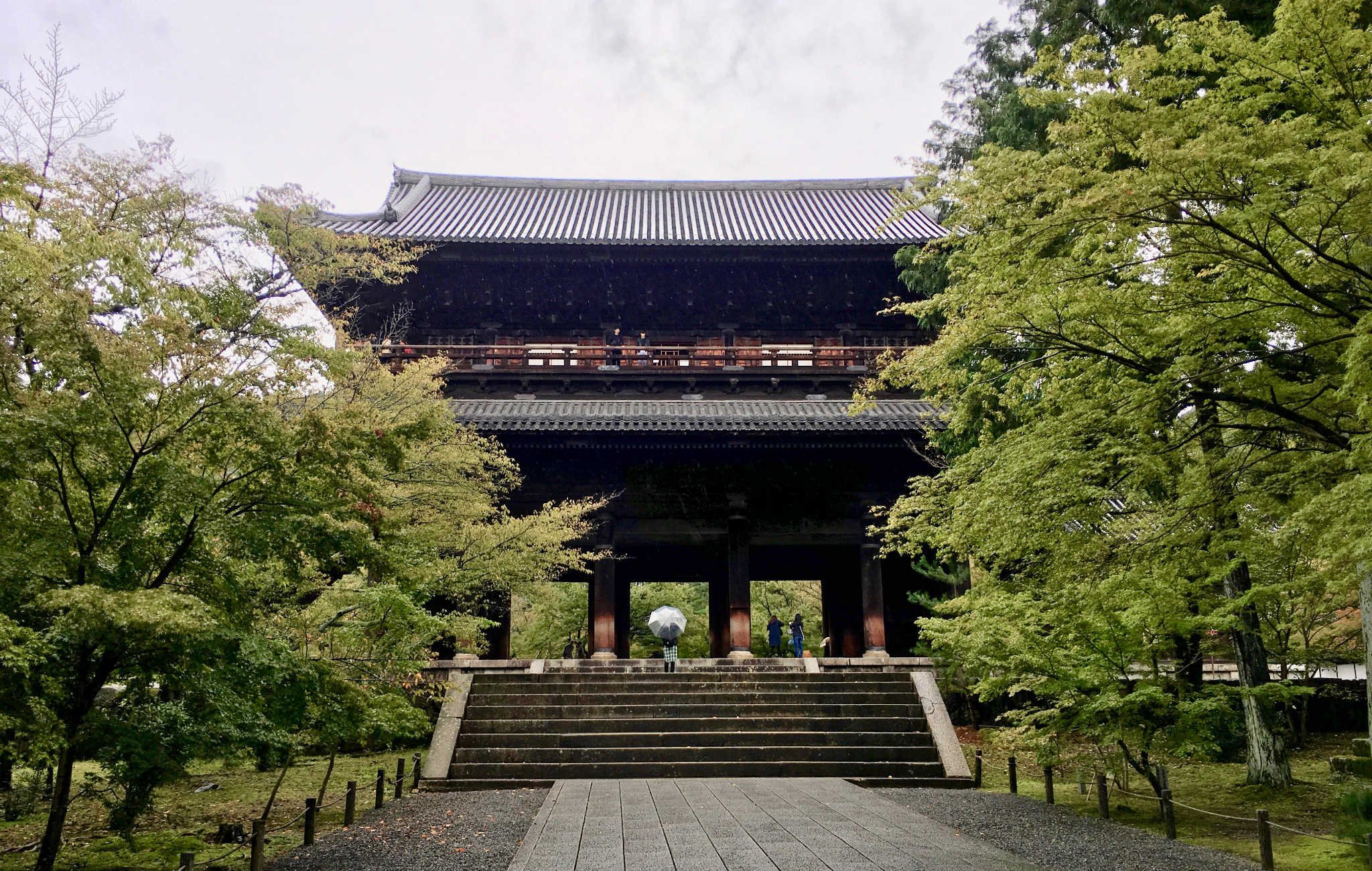
The gate is entirely made of wood, and its architecture is really impressive. I love to look at details such as wood assemblies, fittings on old doors.
The old floors are worn by thousands of visitors who came to admire the panorama. Autumn is not very advanced yet, and the maples are just starting to change color. During the period of Kōyō (the reddening of maples), the place is a favorite spot to admire the show.
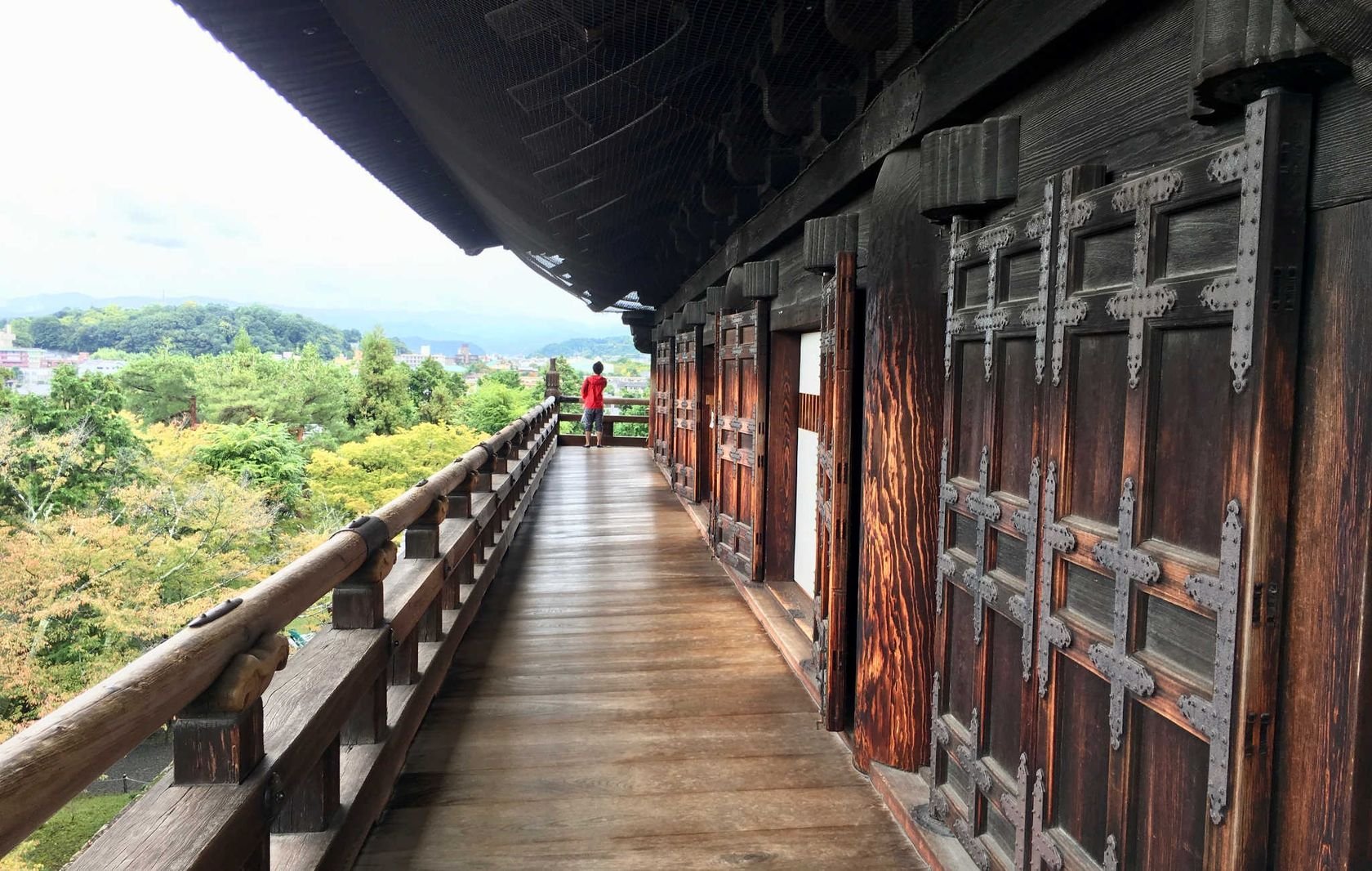
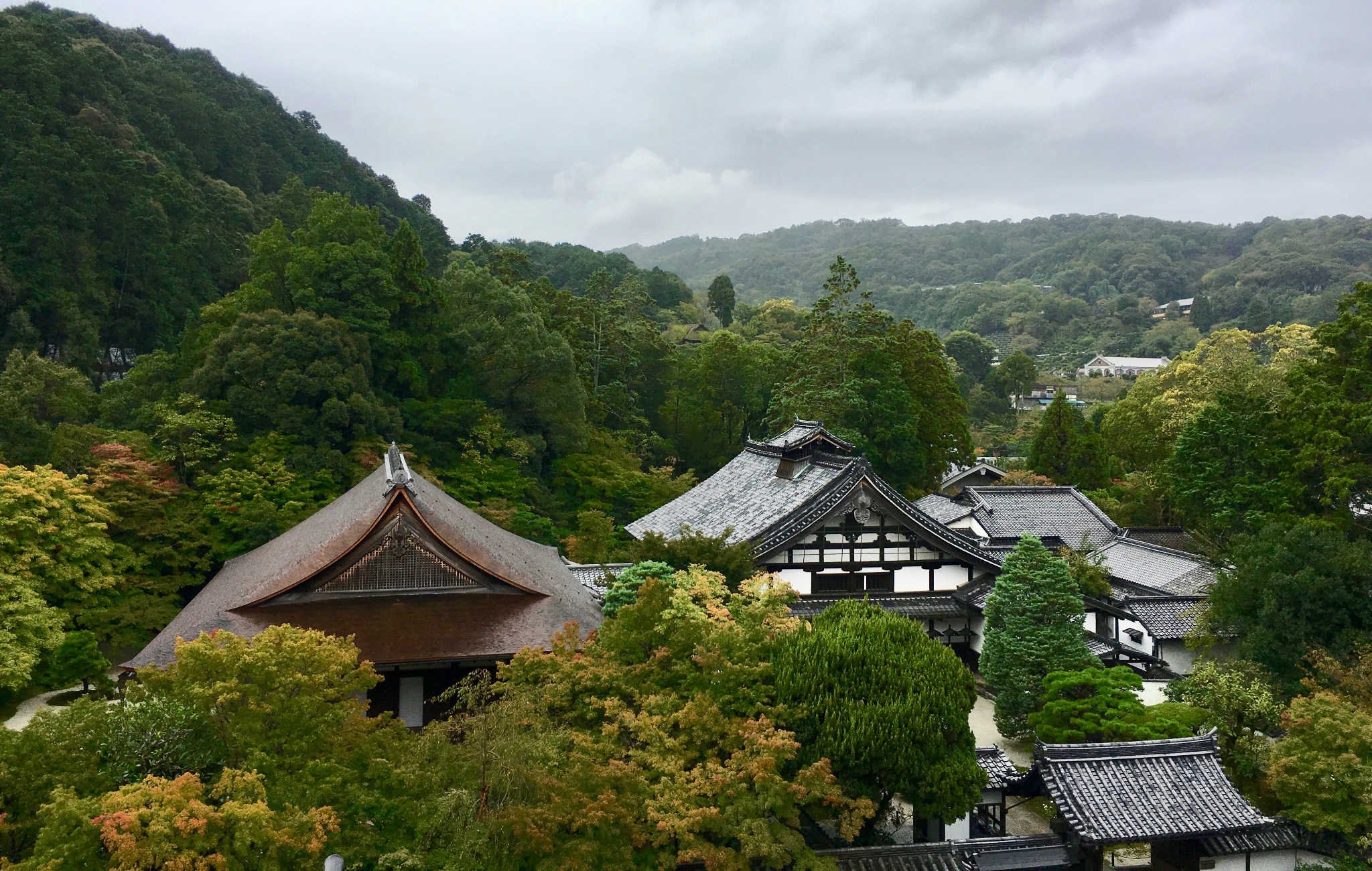
I meet a couple of young Japanese who want me to take a picture. I try to explain to them that it would be better to put themselves on the other side so that we do not go against the light. But they insist that I take them to this place, which I do without flinching. They offer me to take my picture too, obviously I'm against the light too!
I continue the visit of this vast Buddhist complex, by the Hōjō: the former residence of the emperor. A big censer is placed in the court, and further away something that one would not expect to find here: an aqueduct! This huge construction was part of a network of canals built under the Meiji era, for the transport of water but also goods.
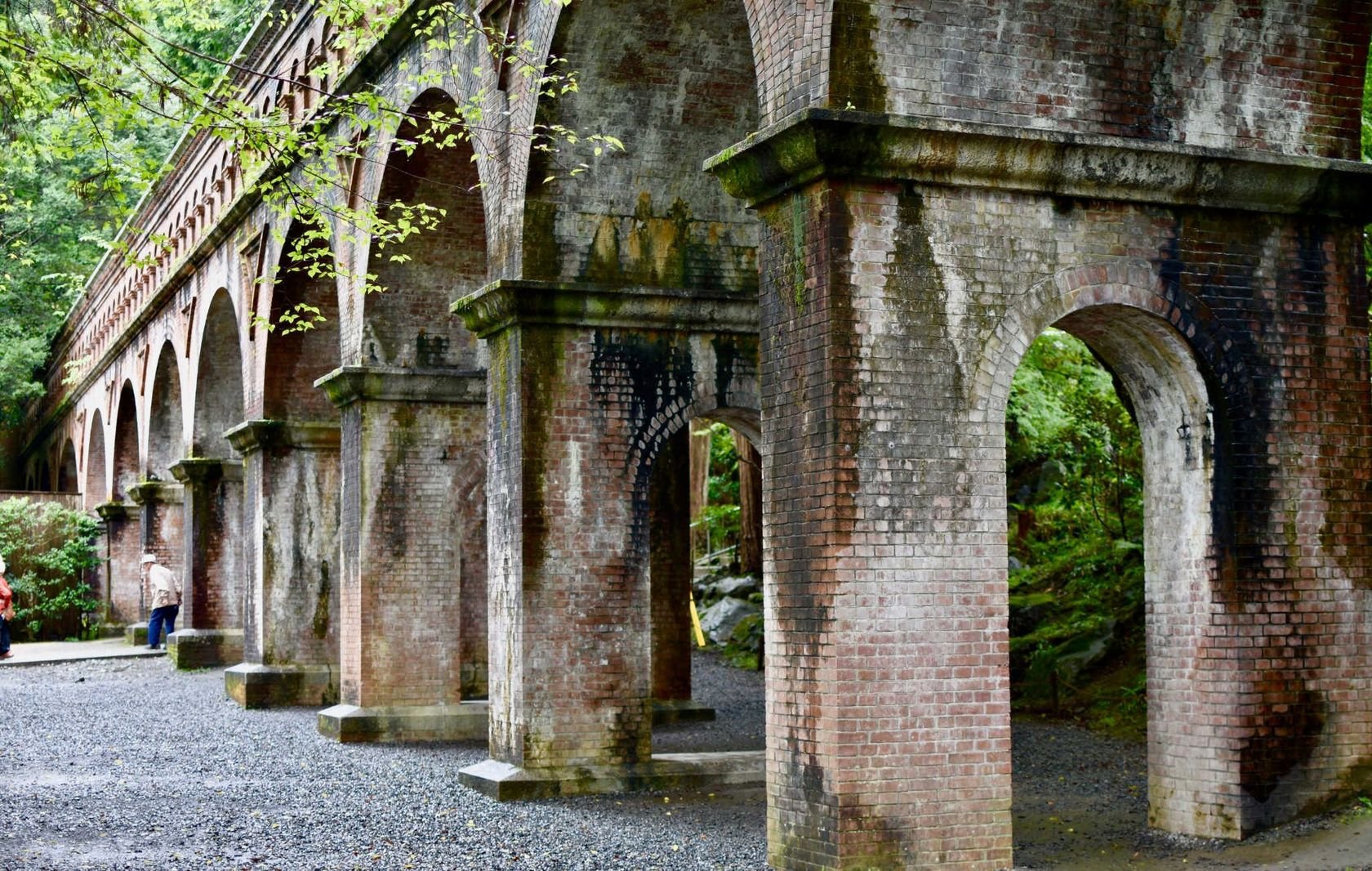
Nanzen-ji is remarkable for its size and two gardens that I had the chance to visit.
The first is Nanzen-in, which owes its creation to Emperor Kameyama who, strongly influenced by Buddhism, transformed his palace into a temple. What is known today as Nanzen-in is a part of the original garden.
It is a typical Japanese garden that is organized around its waterways and wide walkways. The greenery is ubiquitous, with many maples (unfortunately they still have their green foliage).

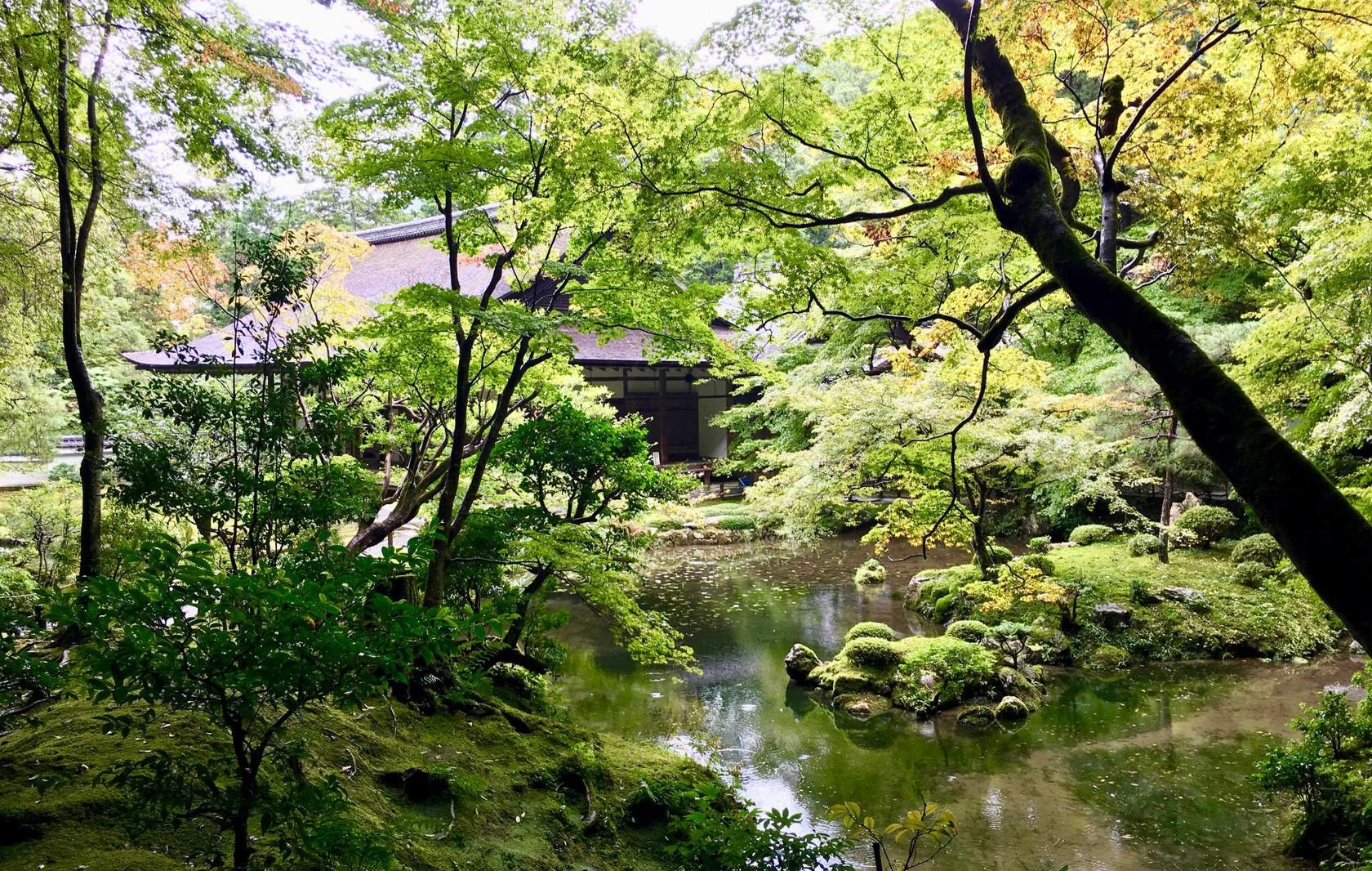
The original temple was destroyed (like many historical wooden buildings in Japan) but rebuilt in the 18th century, entirely in cypress wood. It is a quiet and relaxing place, which invites to sit down for a moment and watch.
I then go to Tenjuan Temple and its garden. I cannot find it, so I ask someone who gives me the right direction. Nanzen-ji is really very very big.
I then enter a place a little secret, and that seems unknown to tourists. In a first part, a central building with its interior covered with tatami mats that faces a Zen garden.
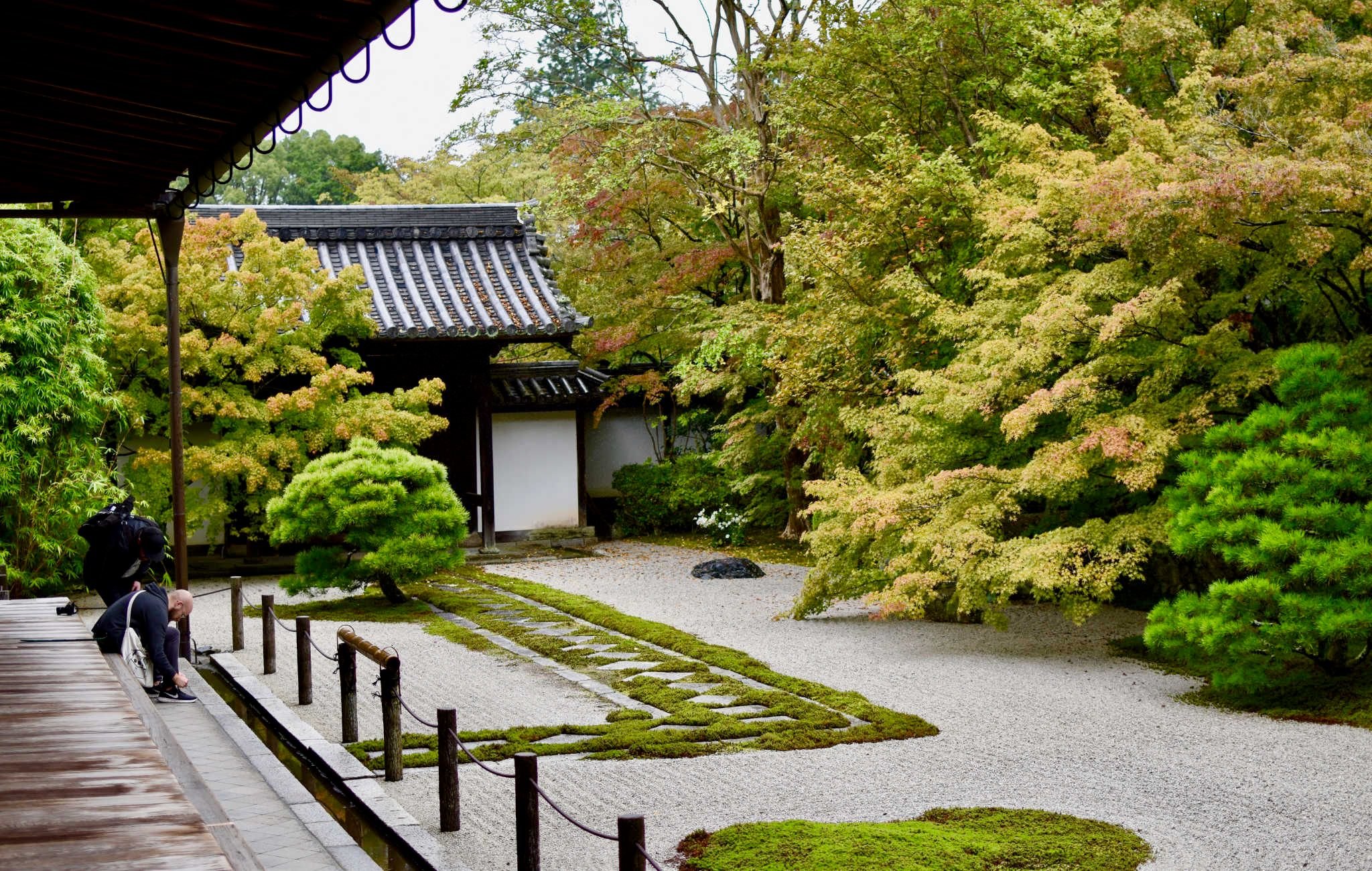
The second part of the Tenjuan Garden is freer, organized around ponds, several bridges, lanterns. Everything seems to have been here for hundreds of years. At the end, a magnificent traditional house.
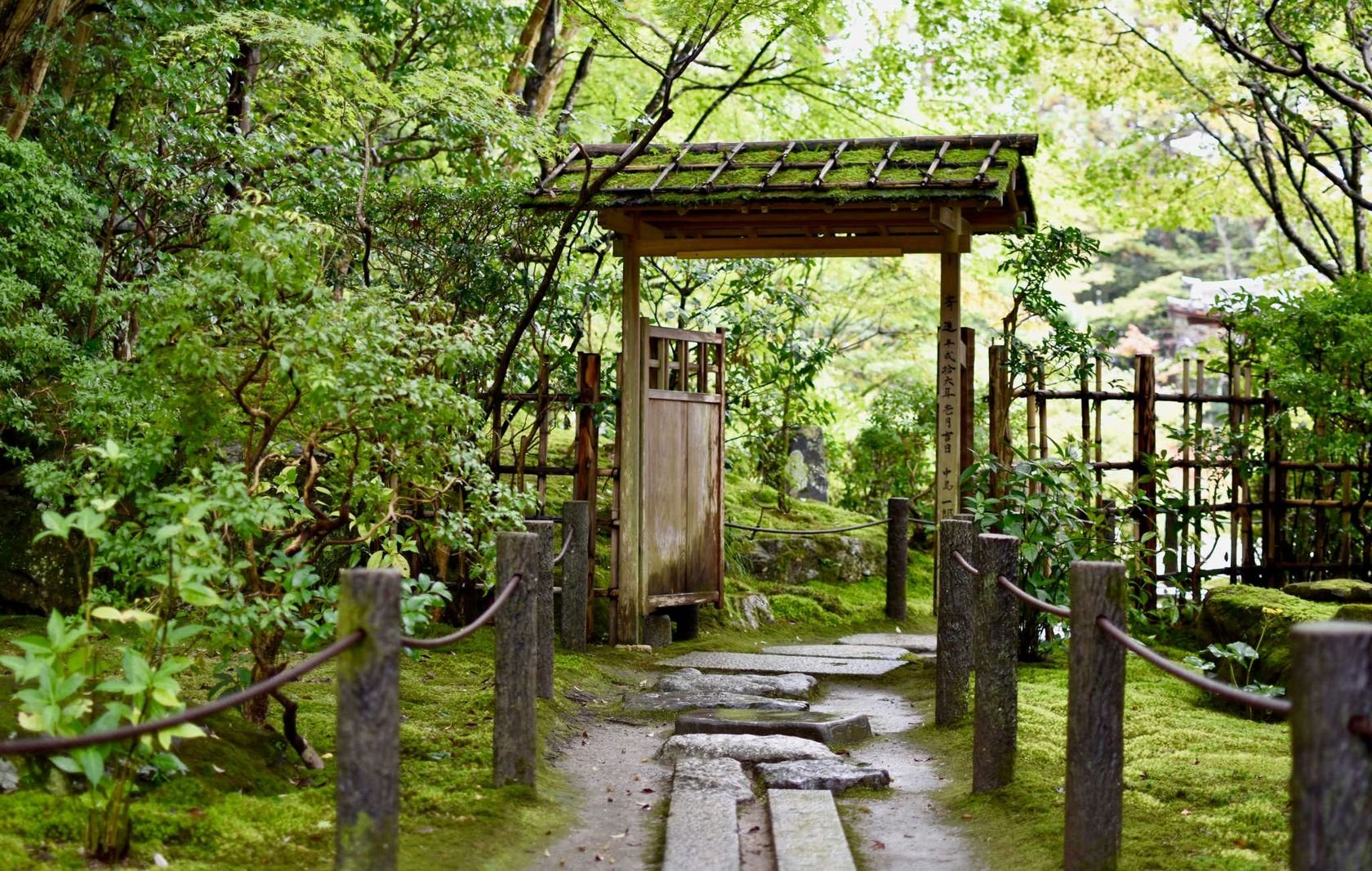
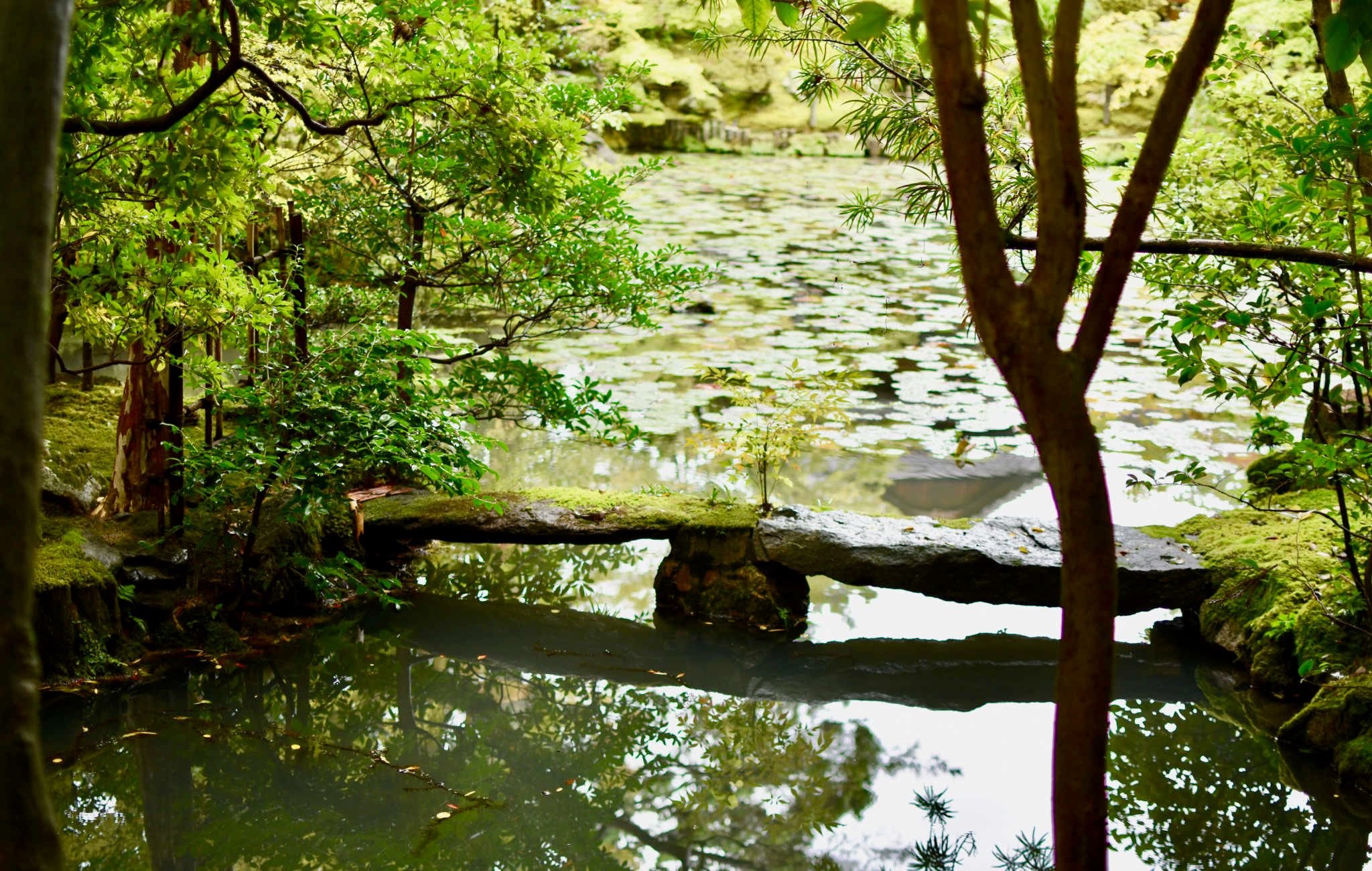
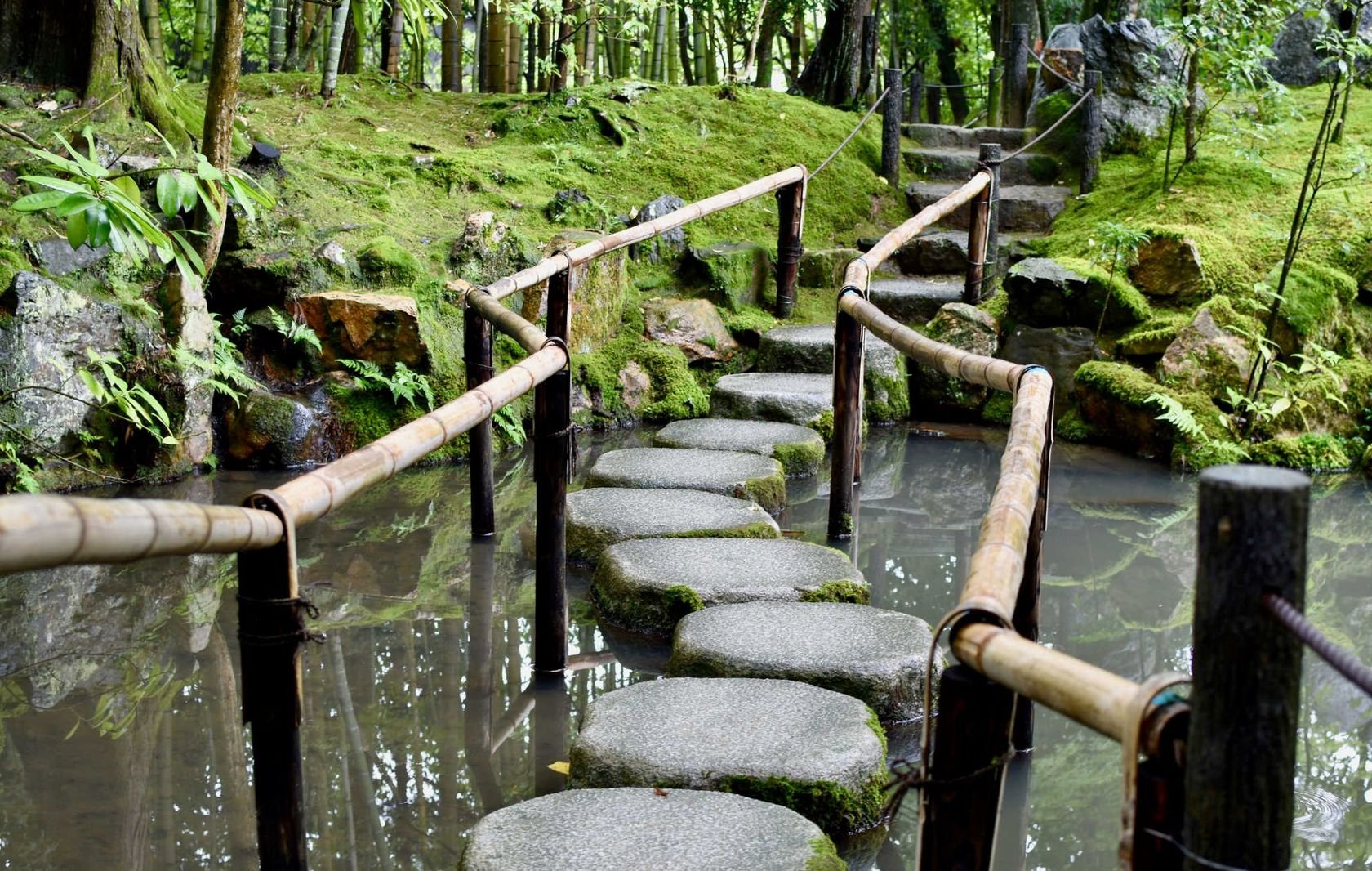
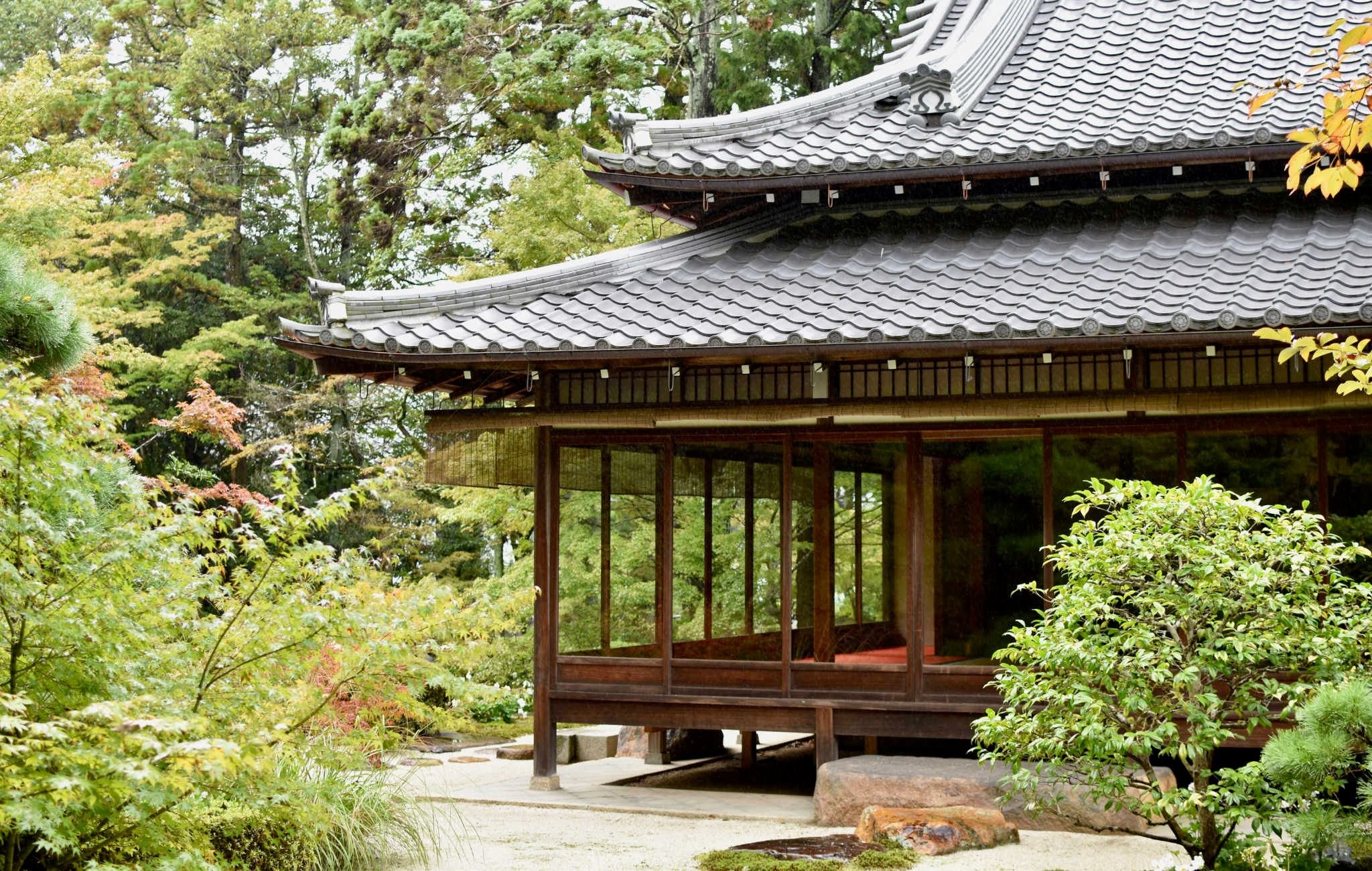
It is truly an extraordinary garden, certainly one of the most beautiful in Kyoto. The Nanzen-ji temple deserves half a day to be spent there as there is much to see. It's a place where I will come back with pleasure, and discover new hidden and little known places. But now, I resume my walk to the south. In this area of Higashiyama there is actually a significant concentration of temples, shrines, gardens. It is still early in the afternoon, I continue my journey towards a new discovery.
-- @japon
01: Travel diary in Japan, by @japon
02: Tokyo, overcrowded city? Really? by @japon
03: Are the Japanese too disciplined? by @japon
04: Going to Japan without speaking Japanese? by @japon
05: Ueno, more than just a big park in Tokyo, by @japon
06: Asakusa, diving in the heart of Tokyo's historic district, by @japon
07: Ameyoko, Ueno's colorful market, by @japon
08: Tsukiji, the largest fish market in the world, by @japon
09: Climb the steps of Atago Jinja Shrine in Tokyo, by @japon
10: Hama Rikyu, an exceptional park in the heart of Tokyo, by @japon
11: Jimbocho, old books and tempura, by @japon
12: Shinjuku Gyoen Park and the best burger in the world!, by @japon
13: One night in Shibuya, by @japon
14: Takeshita dori : this little street dedicated to fashion (and good crepes), by @japon
15: They lie to you about Kyoto, by @japon
16: The temples and secret garden of Higashi in Kyoto, by @japon
17: Kinkaku-ji, the temple of the Golden Pavilion in Kyoto, by @japon
18: Ryoan-ji, the amazing stone garden in Kyoto, by @japon
19: The Ninna-ji Temple and its extraordinary gardens, by @japon
20: Kyoto Gyoen, the Imperial Palace Park, by @japon
21: Nishiki Market: A Must in Kyoto, by @japon
22: Ginkaku-ji, the temple of the silver pavilion in Kyoto, by @japon
23: Meditate on the path of philosophy, by @japon
